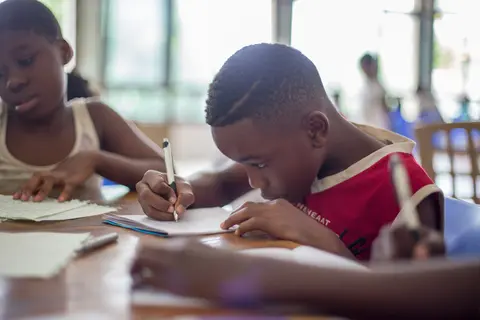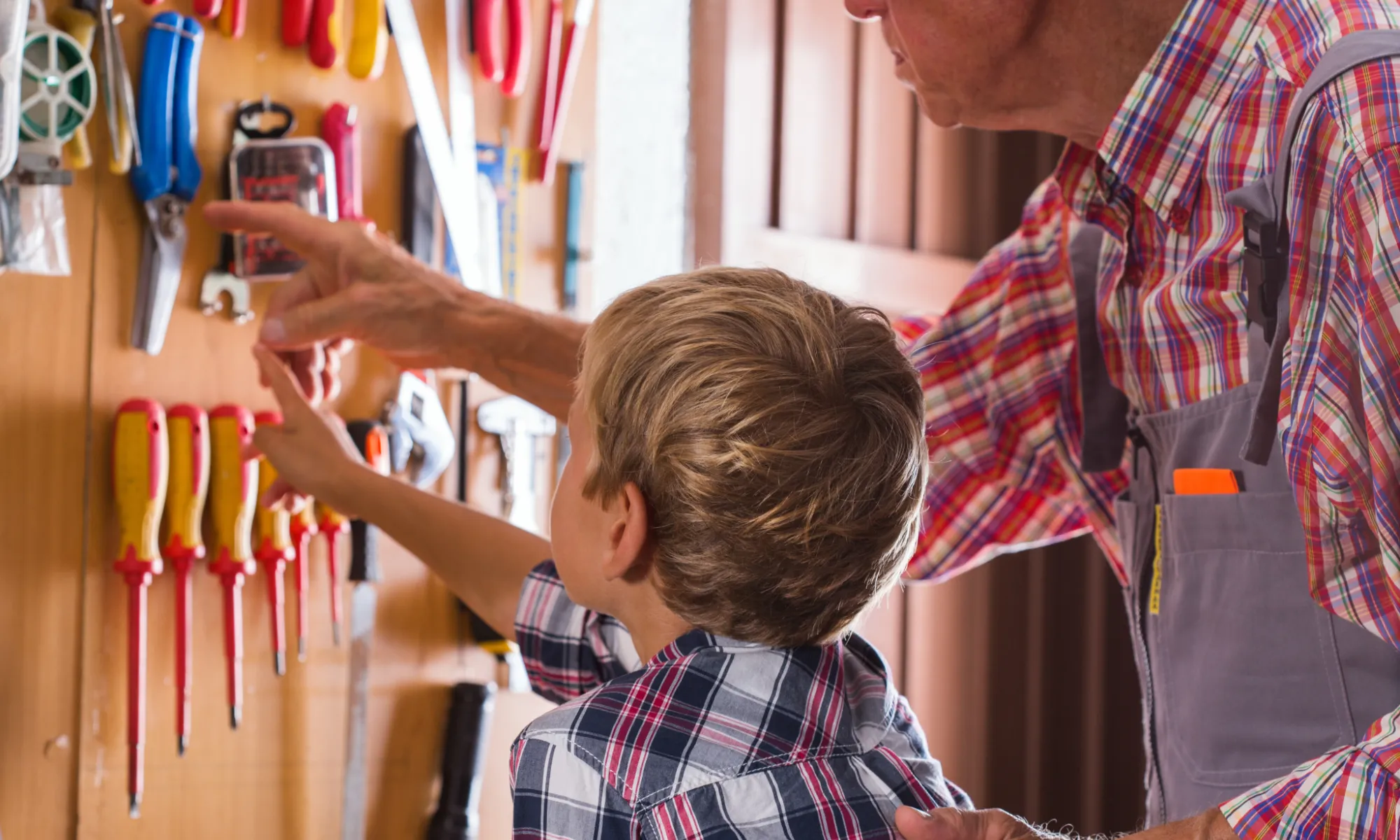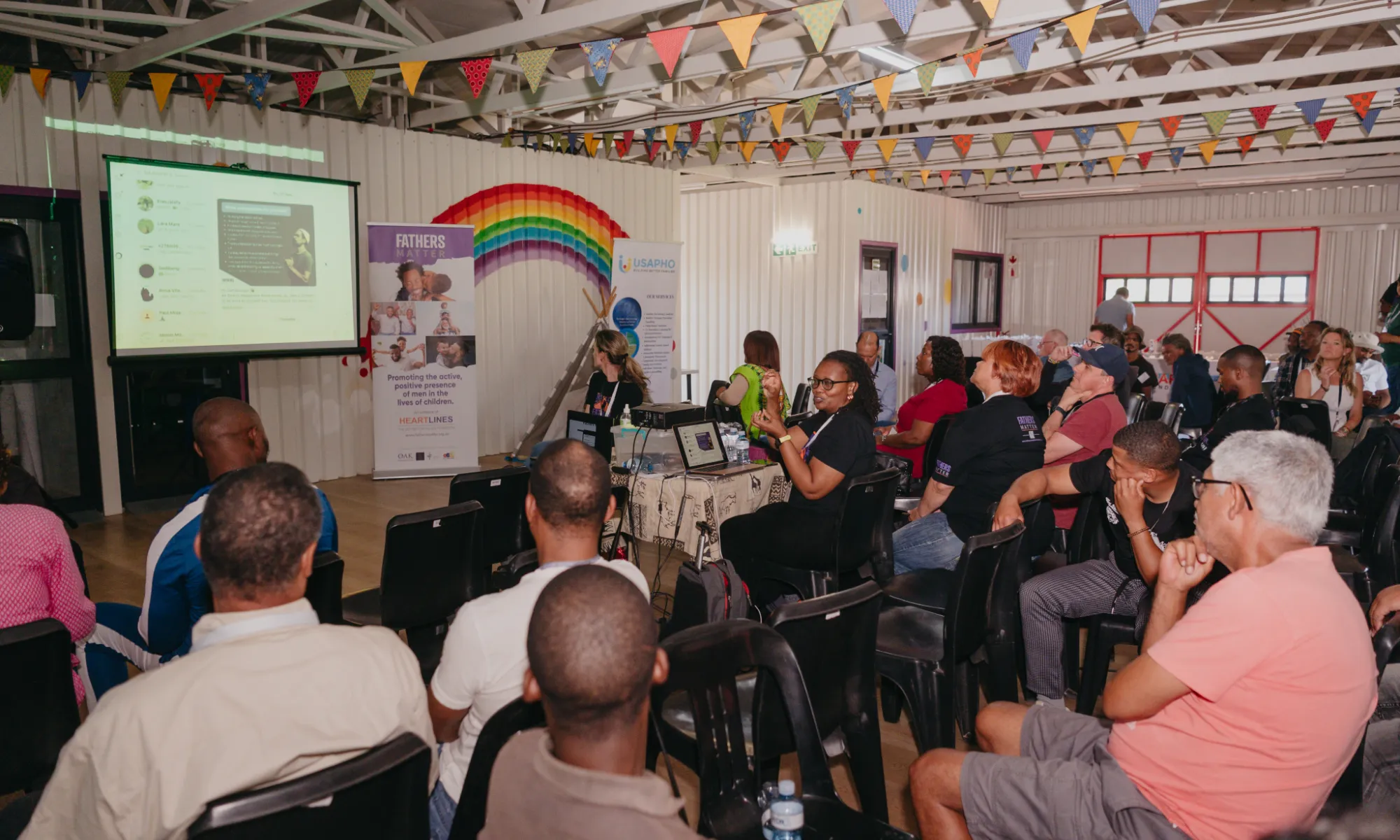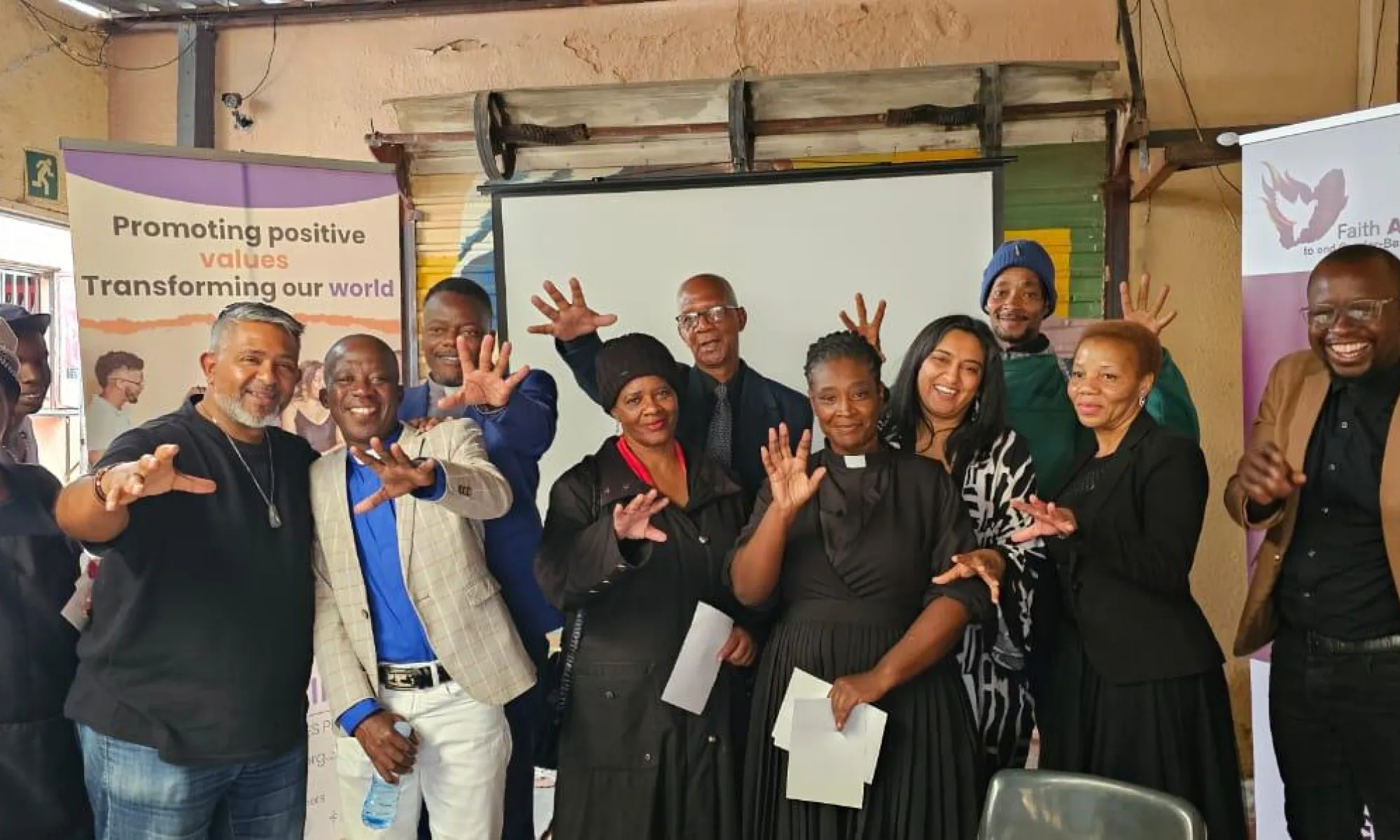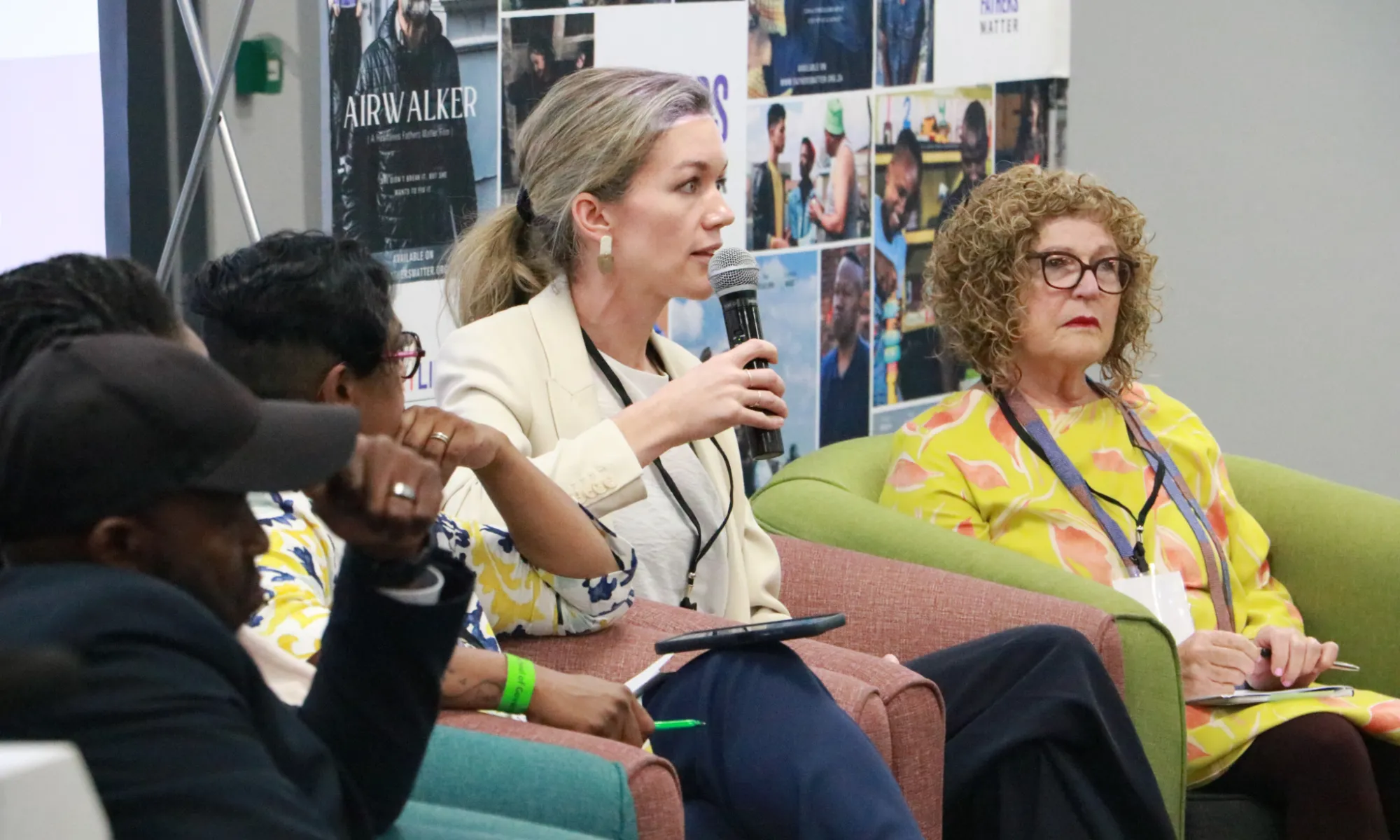Focusing on youth is next for Fathers Matter
Working with fathers , GBV , Youth , Children , Youth MessageBeliefs around fatherhood and parenting in general are shaped from a young age. This is why Fathers Matter is embarking on a youth-focused strategy to reach young people and hosted a Youth Message Design Workshop with practitioners, researchers, young leaders and youth advocacy partners.
“When I grew up, I was dealing with a black-and-white small TV screen. Today, young people are dealing with a whole globe through the screens in their hands. Laying a foundation with the right messages about a father who is present, is more important now than ever.”
This sentiment, shared by a practitioner in youth advocacy, aptly captured why the Fathers Matter project is taking firm strides to start directly reaching young people with a message on positive fatherhood. The Youth Message Design Workshop brought together youth practitioners, researchers, young leaders and creatives to hear the preliminary findings of the Heartlines Fathers Matter youth research, and to participate in designing the messages for a youth-focused strategy.
At the workshop, which took place at the Wits School of Governance on 9 and 10 April, the cohort set out to answer a critical question: how do we develop positive messages on fatherhood for young people in South Africa, in a way that truly resonates?
“We are embarking on a new focus to reach young people, 10–16 years old, “ said Fathers Matter project director, Zamabongo Mojalefa. “As part of this, our Heartlines research unit has been conducting formative research and running focus groups with young people around the country.” A literature review was also commissioned, as well as a media scan around youth trends, which was shared by Harriet Perlman, producer of the Fathers Matter Films Series. “We have intentionally crafted stories to challenge negative attitudes and behaviours, and to foster positive change, and have seen the efficacy of this approach,” added Perlman. All of this research will form the basis for the youth strategy.
Initial research findings very alarming
“Our research process started in February 2023 and included engaging organisations who work with teens and pre-teens, defining our theory of change process, and gaining ethics approval to do focus groups with young people,” said Livhuwani Maphorogo, head of the Heartlines research unit. “The literature review we commissioned showed the impact of father absence on boys; but not enough research has been done on girls.” She stressed that continued research into effective healing processes and documenting the experience of fatherlessness on girls, were essential.
The research unit conducted over 30 focus groups with young people across various provinces in the country, aged 10–12 years, and 13–16 years old. One of the key questions they set out to answer was this: in what way does a father’s absence impact the identity of a child, and their relationships with family, friends and their community?
“To be honest, the initial findings from our focus groups were unexpectedly depressing and unsettling for us as researchers,” Maphorogo shared. “It was troubling to hear the extent of abuse from fathers that many children face, and how a father’s absence deeply affects their well-being.” The research also highlighted the importance of fathers in the lives of children and the complex relationship many young people have with their dads.
It was not all doom and gloom, though, with many young people reporting positive experiences of their fathers as supportive, loving heroes. Regardless of their own experiences, young people were able to articulate the difference between a “good” and a “bad” father, with most of them expressing a desire to one day mimic those with positive qualities.
Crafting a way forward
Drawing from their work with young people in their respective fields, and the reflections shared by a panel of practitioners, the delegates then got to work strategizing how best to craft messaging around the research’s key themes in ways that would resonate with young people.
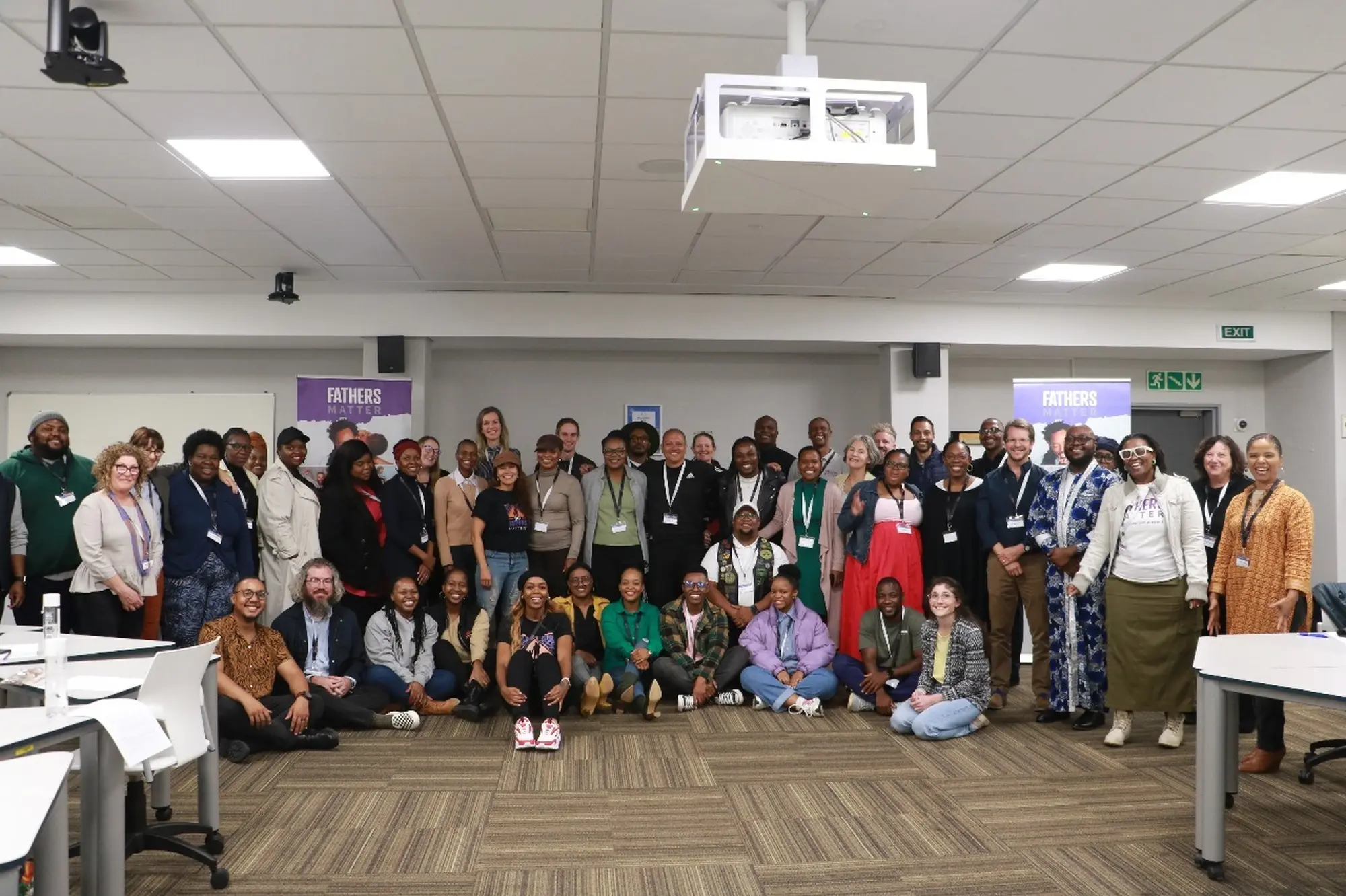
The collective recommendations included:
- Speak to young people, not about them.
- Young people are looking for authenticity, connection, a sense of belonging.
- Be willing to show vulnerability, and create safe spaces where they can be vulnerable.
- Use storytelling, activities and music to bridge shorter attention spans.
- Create relatable, relevant content.
- Global issues are important to youth, but also hero positive local role models.
- Understand how trauma is translated from one generation to another.
- Speak to their holistic being – body, mind, spirit, soul.
- Be willing to address the imperfections, and don’t create a system of shame.
- Go into their world and tell their stories.
“Focusing on this age group might only give us results in 20 years’ time, but that doesn’t mean we shouldn’t work towards it now,” stressed Heartlines CEO, Dr Garth Japhet. “The issue of positive fatherhood is as much a women and men’s issue, as it is a girls’ and boys’ issue. We have to start right now.”
The focus group process is still ongoing and a final formative report on the findings will be available later this year. To receive a copy of the report when it becomes available in June 2024, email the Fathers Matter team.
This phase of research is the first part of a long process to develop a youth message that will also filter down into other Heartlines resources, films, videos and tools.

Nevelia Moloi
Nevelia is a savvy and highly-skilled media and communications specialist. She has a background in anthropology and magazine publishing and heads up the Heartlines media and communications team.
Featured
